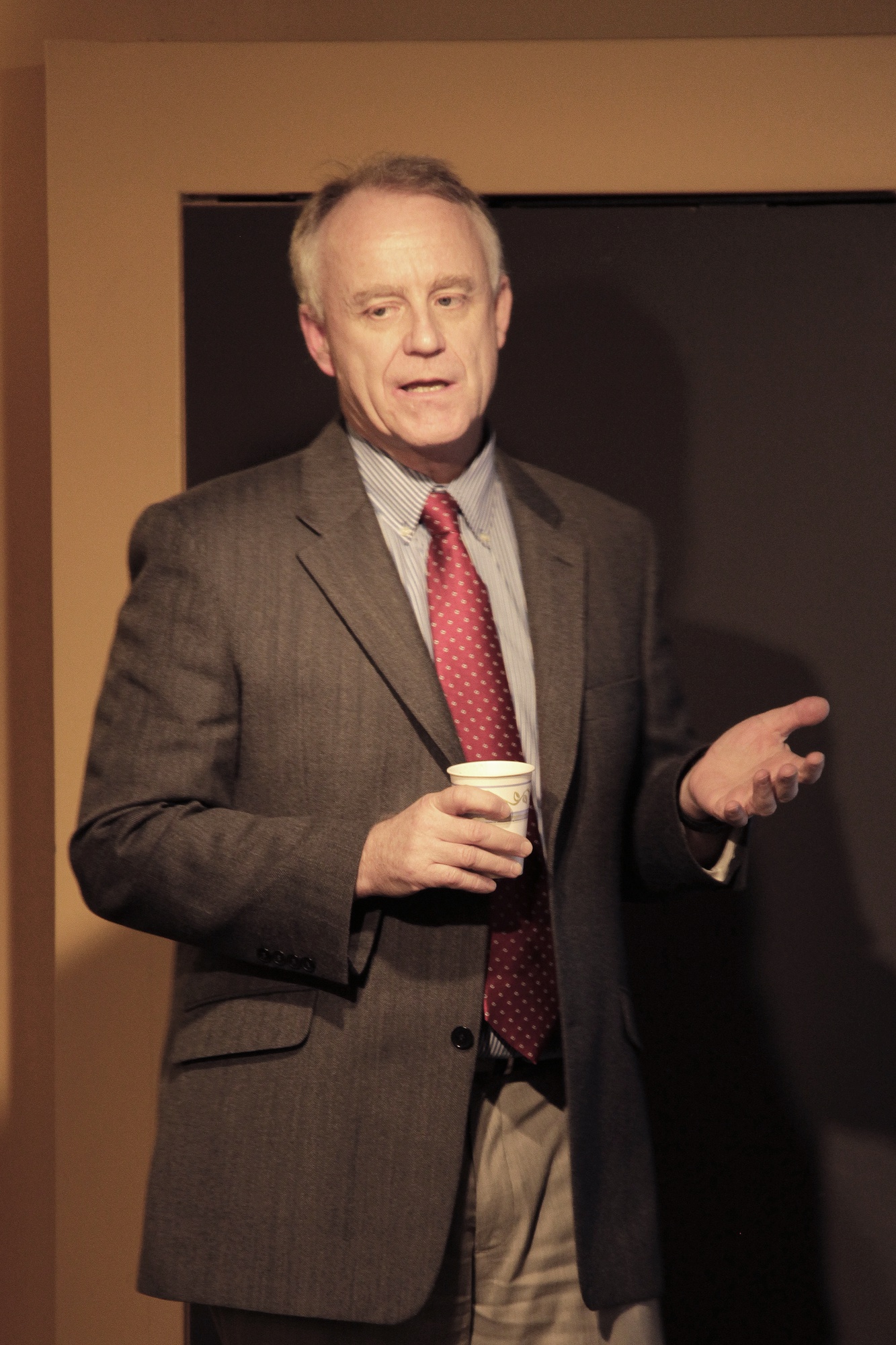
News
When Professors Speak Out, Some Students Stay Quiet. Can Harvard Keep Everyone Talking?

News
Allston Residents, Elected Officials Ask for More Benefits from Harvard’s 10-Year Plan

News
Nobel Laureate Claudia Goldin Warns of Federal Data Misuse at IOP Forum

News
Woman Rescued from Freezing Charles River, Transported to Hospital with Serious Injuries

News
Harvard Researchers Develop New Technology to Map Neural Connections
Mass. General Chief of Global Health, Human Rights Lectures on Maternal Health

Thomas F. Burke, the chief of the Division of Global Health and Human Rights at Massachusetts General Hospital, argued that the greatest inequality on earth is health care for women in poor countries during a talk at Ticknor Lounge on Tuesday.
Burke spoke to a crowd of about 30 students on the importance of men’s roles in women’s health during the presentation, which was advertised as “Be a Man in Maternal Health.”
The event was chiefly organized by the Harvard Undergraduate Maternal Health Initiative and was co-sponsored by the Sigma Chi and Sigma Alpha Epsilon fraternities, the South Asian Men's Collective, Asian American Brotherhood, Black Men's Forum, and Harvard University Global Health Forum.
During his presentation, Burke argued that significant inequities remained between women in affluent nations and women in poorer nations. He said that girls in certain underprivileged nations statistically face a one-in-six chance of dying of pregnancy-related causes in their lifetimes, whereas the corresponding statistic in the United States is one-in-18,000.
Burke also explained some of the ways in which his division at MGH has been involved in tackling maternal health issues in less privileged nations. According to Burke, 2.6 million women are disabled every year by postpartum hemorrhage.
“These are all preventable deaths, and they almost all happen in poor women,” Burke said.
To tackle the widespread effects of postpartum hemorrhage, Burke said his department has been involved in creating a low-cost solution, a reusable Uterine Balloon Tamponade treatment that can be offered at a cost of $4.85 per unit in underprivileged nations.
“This four eighty-five can save many, many lives,” Burke said.
Burke expanded his focus to the importance of financial and entrepreneurial involvement in maternal health issues. He called for business, cultural, and regional collaboration to incite change in the maternal medical community.
“Science has shown us that investing in women and in girls has an enormous economic return, an enormous social return,” Burke said. “This return allows for lifting families and communities out of poverty.”
HUHMI was co-founded last fall by its current president Michelle J. Wang ’14 and advocacy and outreach co-director Eunice Kim ’15. Regarding the motivations to start the group, Wang said there was a lack of specific interest in maternal health on campus.
Last spring, HUMHI organized a week to raise awareness surrounding topics in maternal health. In the future, Dylan V. Neel ’15, the group’s research and development co-director, said HUHMI hopes to continue its advocacy work by reaching out to groups at the Harvard Innovation Lab to achieve a more entrepreneurial focus.
Want to keep up with breaking news? Subscribe to our email newsletter.
